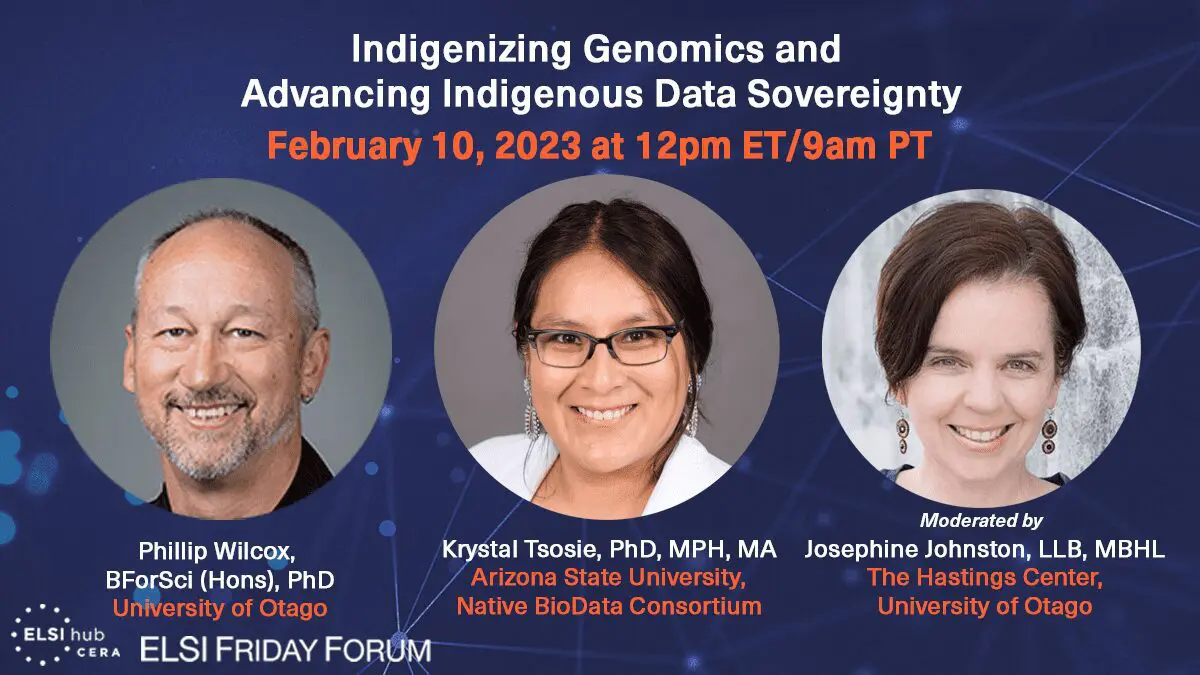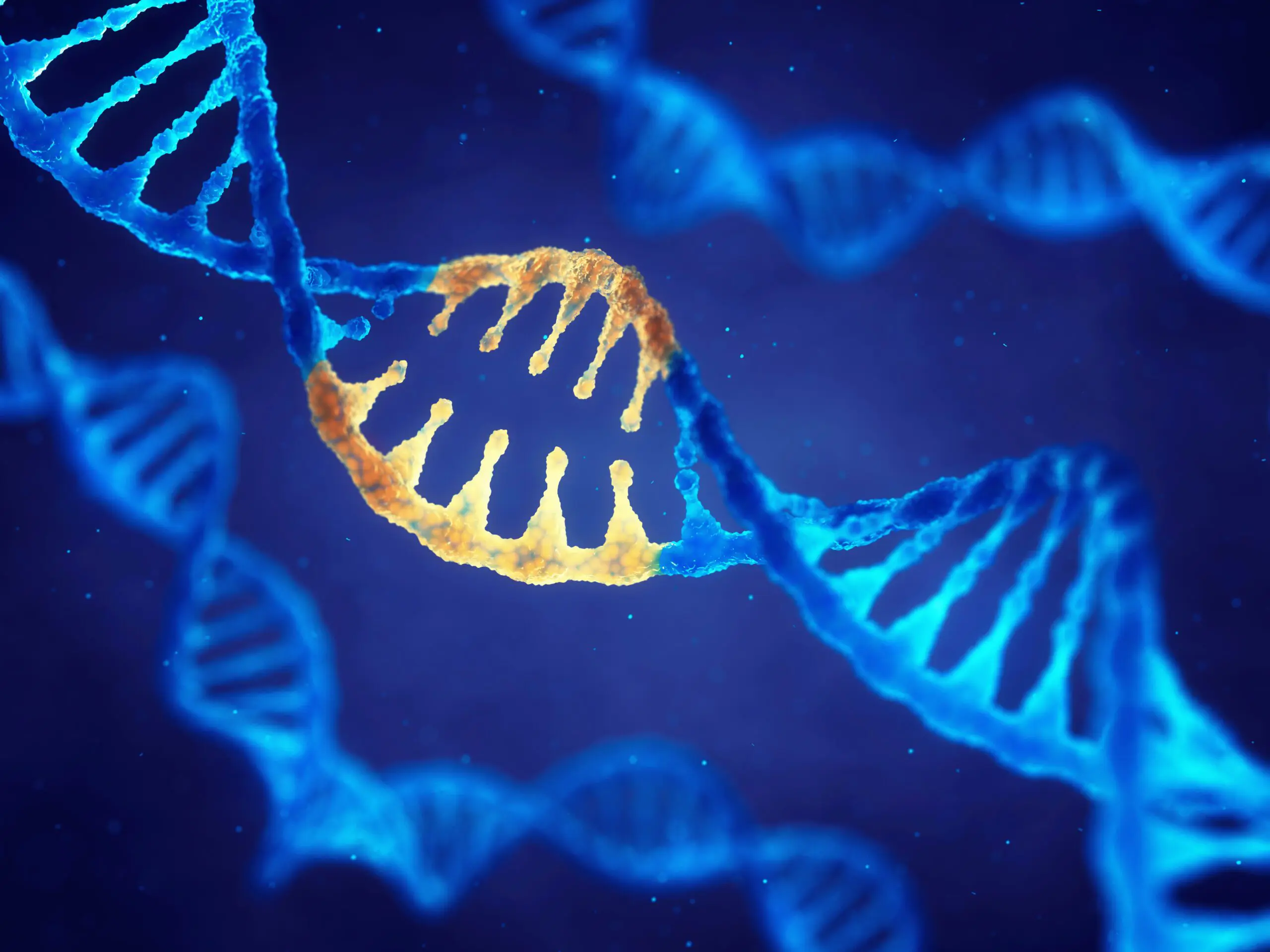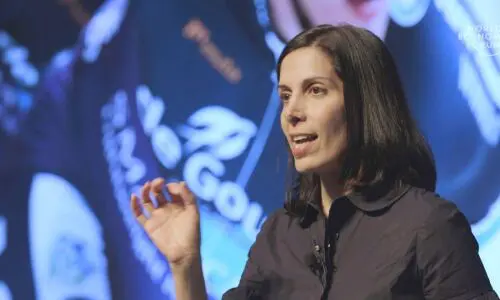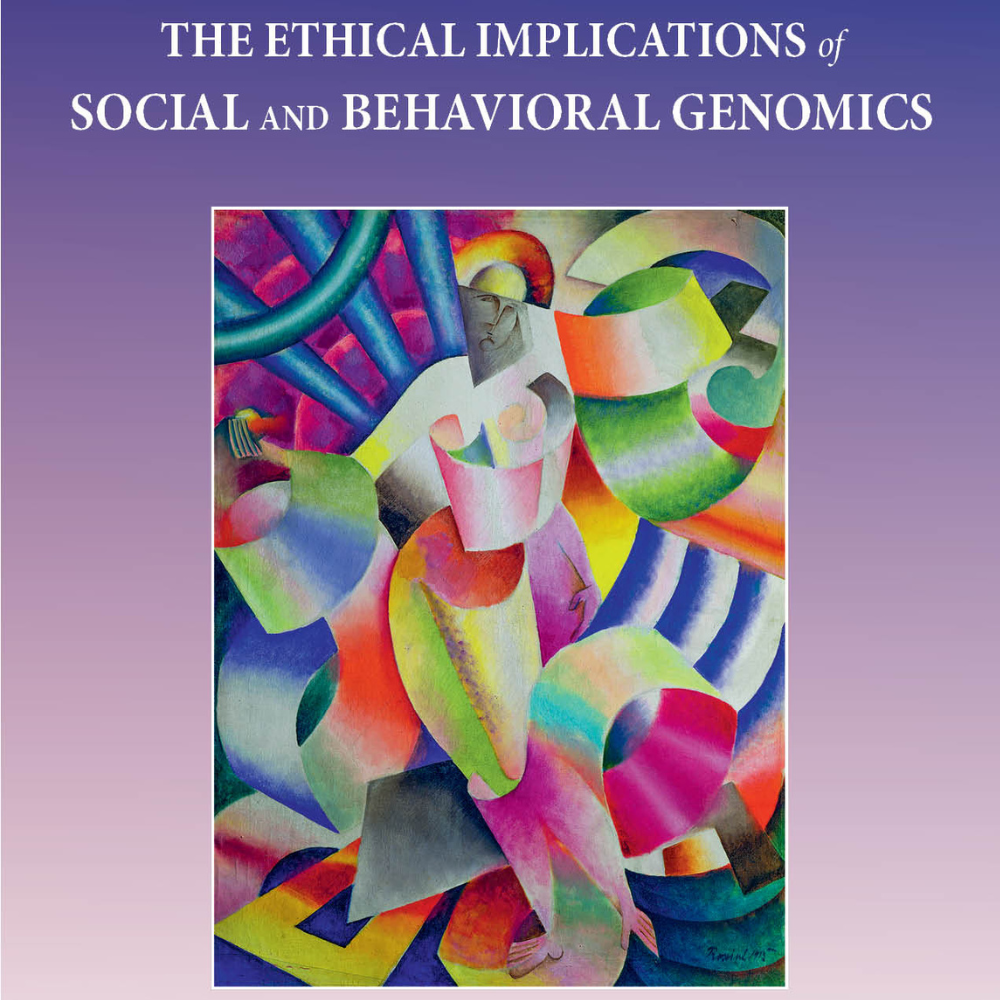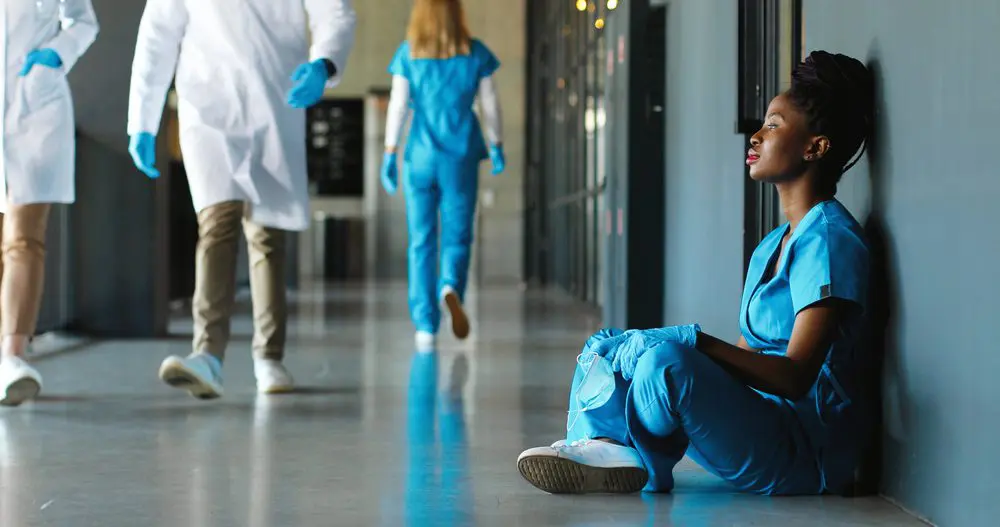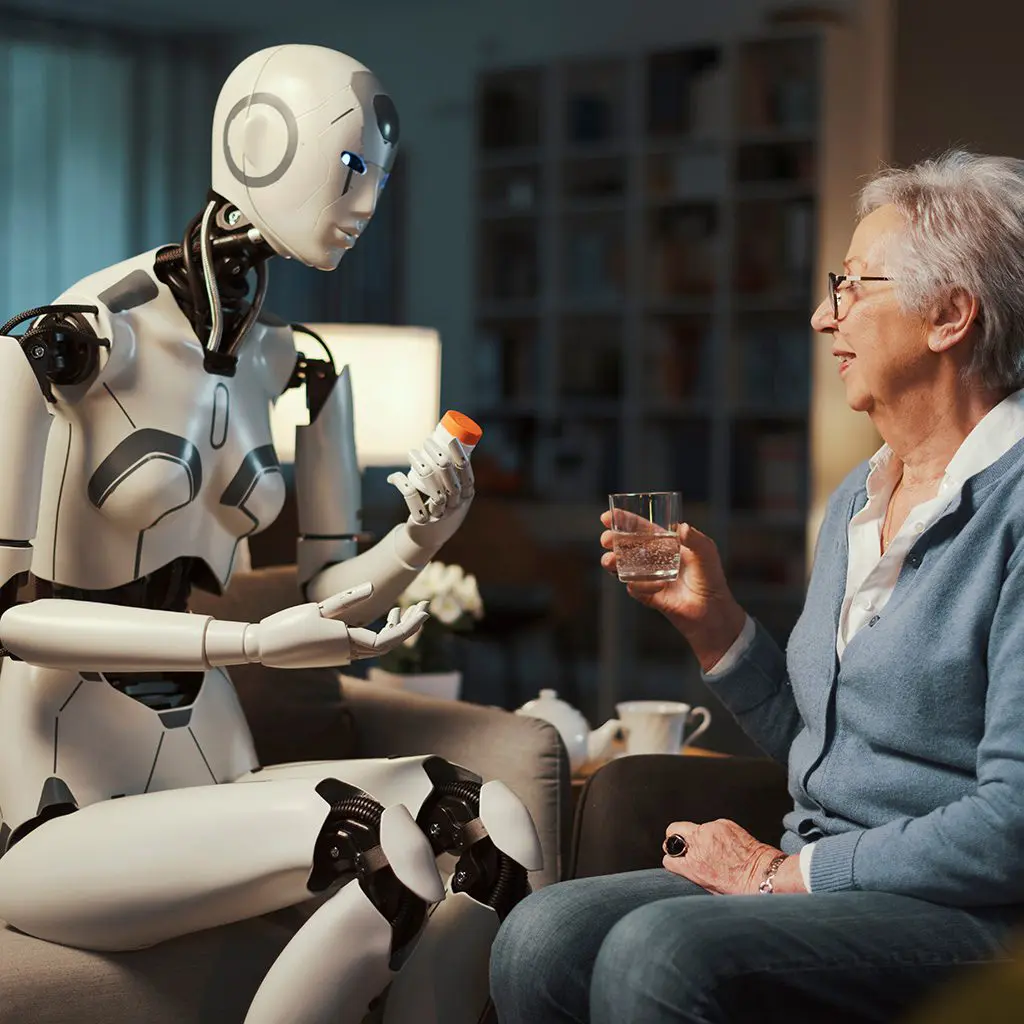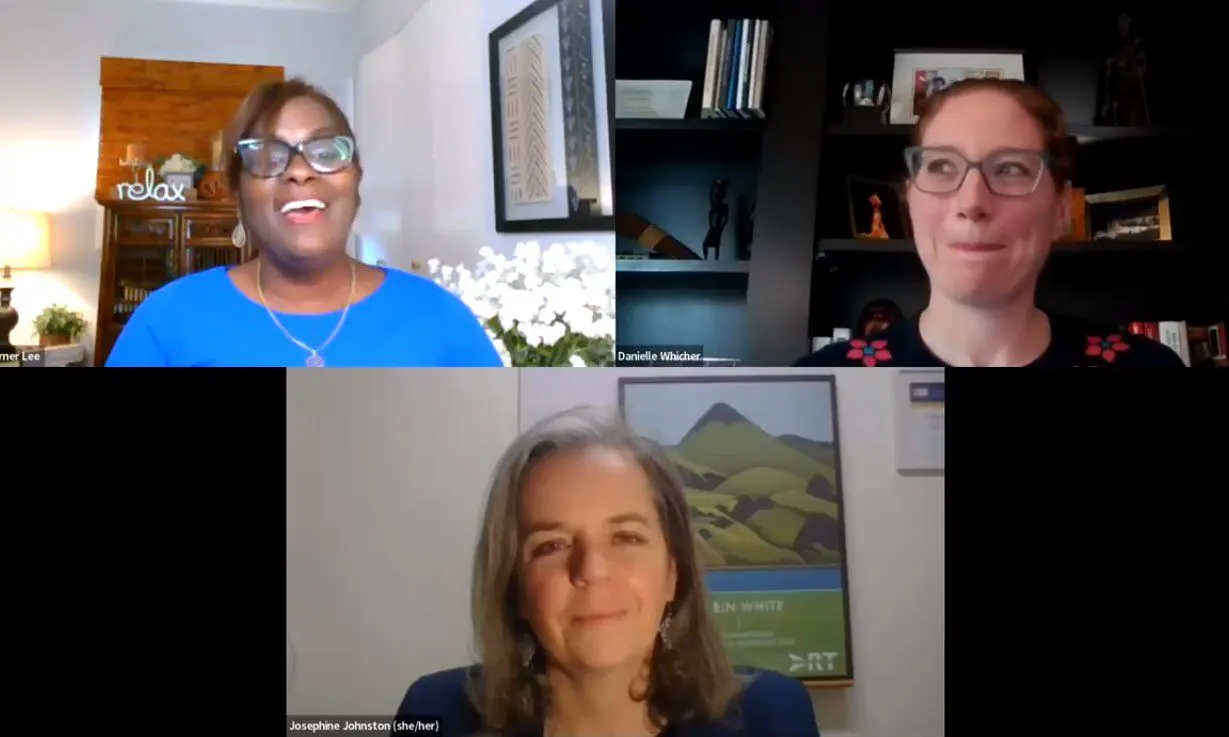Should We Change “Chimeric” Human-Animal Research?
SPECIAL REPORT: Creating Chimeric Animals: Seeking Clarity on Ethics and Oversight Crossing species boundaries by inserting human cells into (nonhuman) animals for research purposes promises to yield enormous benefits, including better models of human disease and ultimately sources of tissues and organs suitable for transplantation into humans. Yet there are ethical questions about this type...
Indigenizing Genomics and Advancing Indigenous Data Sovereignty
OnlineIndigenous peoples have embodied genetic understanding within Indigenous knowledge systems long before encountering settler-science constructs.Join the discussion with panelists Phillip Wilcox, BForSci (Hons), PhD, and Krystal Tsosie, PhD, MPH, MA; moderated by Josephine Johnston, LLB, MBHL
Synthetic Biology and the Reinvention of Nature
OnlineThe Institute for Practical Ethics presents a special guest lecture with Gregory Kaebnick, Research Scholar and Editor of the Hastings Center Center Report, Hastings Center.
Toward Navigating Danger and Promise Together–Editing the Human Genome
A frank look at the ethics of breakthrough genetic technologies TRANSCRIPT A just-concluded summit looked at the state of human genome editing, where the scandal of China's CRISPR babies was fresh in the minds of many. But attendees also heard of the exciting promise that gene editing therapy holds for sickle cell disease, a condition...
The Battle for Your Brain
At the intersection of neuroscience and artificial intelligence lies a wealth of opportunity for business, labor, and society at large. Yet along with progress comes a host of legal and ethical dilemmas. Watch Nita Farahany and Mildred Solomon consider what our neurological information is worth, and the implications of making it available to corporations, work places...
“Binocularity”: A Conceptual Tool for Comprehending and Respecting Persons
OnlineHastings Center senior scholar Erik Parens will be giving a lecture at Smith College on “Binocularity”: A Tool for Comprehending Persons.
Confronting Climate Change in a Perfect Moral Storm
OnlineAre ethicists asleep at the wheel in protecting planetary health? Global warming is intertwined with persistent problems of social justice, systemic racism, the U.S. history of colonial oppression, and the dominance of capitalist consumer norms over health and health care. Why are these bioethical injustices? Why are these issues still not a central concern for many?...
In Vitro Derived Human Gametes as a Reproductive Technology: Scientific, Ethical, and Regulatory Implications
OnlineThe National Academies will convene a workshop to explore the in vitro derivation of human gametes (eggs and sperm) from embryonic or induced pluripotent stem cells, and its potential impact on research and reproductive medicine with Joel Michael Reynolds, Hastings senior advisor and fellow.
EVENT: Wrestling with Social & Behavioral Genomics
OnlineResearch on the genetic contributions to human social and behavioral characteristics, or phenotypes, including risk-taking, income, and educational attainment, is increasing. And it is both potentially beneficial and deeply controversial, given the long history of attempts to use claims about genetic differences to advance unjust social policies and ongoing concern about their misuse. What are...
Follow the Money! Understanding the Structural Incentives for Inequity in Health Care and Beyond
The American Medical AssociationThe Hastings Center is a co-sponsor along with The American Medical Association, National Health Equity /Grand Rounds series, "Follow the Money! Understanding the Structural Incentives for Inequity in Health Care and Beyond".
Reimagining Healthcare Work, Repairing Healthcare Systems: Lessons from the Front Line
Responding to the COVID-19 pandemic demanded remarkable creativity, innovation, and change from clinicians. How can we leverage the insights and lessons learned from working during COVID-19 to transform healthcare work going forward? And how can we create meaningful change in a broken American healthcare system? This webinar featured insights from two studies of healthcare work...
Exploring Origins and Impacts of Beliefs about Genetic Causation
Genomic research has fueled hopes that genetic findings will lead the way to precisionmedicine. But whether patients seek and use genetic information will depend on howthey understand the link between genetics and health. This conference will addressthe psychological processes involved in seeking explanations and how they apply tounderstanding the causal role of genetics. Speakers will...
“Individualized Genetic Therapies as a Treatment-Research Hybrids”
OnlineHastings Center Research Associate Danielle Pacia will be giving a presentation on "Individualized genetic therapies as a treatment-research hybrids" at the University of Zurich's ITINERARE Ethics Conference, in Zurich, Switzerland. University of Zurich https://www.itinerare.uzh.ch/en/ITINERARE-Ethics-Conference.html
Should AI Care For Us?
Ethics, AI, and Society Increased attention to the widespread applications of artificial intelligence—and large language models such as ChatGPT in particular—has raised questions about the integration of AI into caregiving relationships. AI will allow at least the appearance of more effective caregiving for aging adults and children by tailoring conversations to an individual’s history and...
Ethical Perspectives
Hastings Center president Vardit Ravitsky, will present with a panel at the 2023 Polygenic Screening Embryo Conference.
Can AI Improve Health Care for Everyone?
VirtualFast-moving developments in artificial intelligence have far-reaching implications for caregivers, patients, and the entire healthcare system. Will the introduction of AI systems improve diagnosis, treatment, and research, bringing better and fairer healthcare to all? Or not? Panelists:Dr. Nicol Turner Lee of The Brookings Institute Dr. Danielle Whicher of Mathematica Moderator:Josephine Johnston of The Hastings Center...

